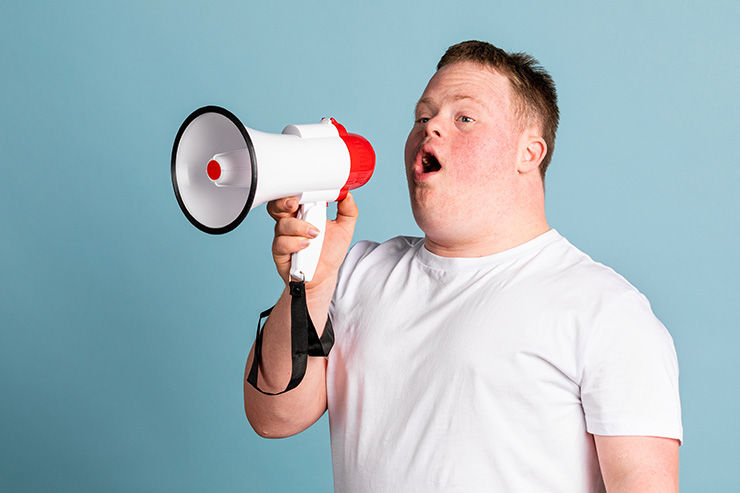How can Down Syndrome impact Speech and Communication?
- Oct 1, 2022
- 3 min read
Updated: Jan 6
October marks the beginning of Down Syndrome Awareness Month. Throughout October, we celebrate people with Down Syndrome and raise awareness of their abilities and accomplishments. It is all about helping people understand what Down Syndrome is, and how people with Down Syndrome experience the world.
What is Down Syndrome?
Down Syndrome is a naturally occurring chromosomal arrangement that impacts approximately 1 in 800 live births, although there is considerable variation worldwide. Down syndrome typically causes varying degrees of intellectual disability, physical challenges and associated medical concerns. For example, Down Syndrome may impact on the individual’s Speech and communication abilities.

The Myths Vs. The Facts from Down Syndrome International
MYTHS | FACTS |
People with Down syndrome do not live very long. | Today, people with Down syndrome can look forward to a long life given the right medical attention. |
Only older mothers have babies with Down syndrome. | Although older mothers have a higher individual chance of having a baby with Down syndrome, more are born to younger mothers, reflecting the higher birth rate in this age group. |
People with Down syndrome cannot achieve normal life goals. | With the right support, they can. Most people with Down syndrome learn to walk and talk, and many are now attending mainstream schools, passing exams and living full, semi-independent adult lives. |
People with Down syndrome all look the same. | There are certain physical characteristics that can occur. People with Down syndrome can have all of them or none. A person with Down syndrome will always look more like his or her close family than someone else with the condition. |
People with Down syndrome are always happy and affectionate. | We are all individuals and people with Down syndrome are no different to anyone else in their character traits and varying moods. |
How can Down Syndrome impact Speech and Communication?
Some individuals with Down syndrome may have difficulty with speech production. This can look like mispronunciation of words and sounds, which may also be referred to as ‘misarticulation of speech.’ Speech production of individuals with Down syndrome may be attributed to differences in oral structure and function. For example, a small oral cavity with an enlarged tongue, a narrow high-arched palate, missing or poorly differentiated muscles of the facial structures and differences in nerve innervation. These factors can contribute to poor speech production and consequently increased frustration for those impacted.
Additionally, individuals with Down syndrome may have difficulty with other areas of communication such as receptive language, understanding of abstract concepts, areas of pragmatics such as initiation and elaboration of topics in conversations with others, as well as repairing communication breakdowns.
Communication challenges can vary from mild to severe, depending on the impact that a speech or communication difficulty is having upon the individual’s day to day life. Other individuals with Down syndrome are less impacted by communication difficulties, have positive social interactions with others and engage in meaningful activities everyday. It is important to recognise that whether or not someone with Down syndrome has communication difficulties, many still live a very happy and fulfilling life, have close-support networks and live semi or fully independent adult lives.
How Speech Pathology can help!
Speech Pathologists can support individual’s with Down syndrome with their speech and communication goals. Communication support is much broader than simply working on ‘Speech’ and ‘pronunciation of words.’ It can also look like functional goals that support people to live a fulfilling, everyday life.
For example:
Being able to access the community more independently and communicate safely with unknown people
Expressing needs, wants, thoughts, feelings and opinions using verbal and non-verbal means of communication such as visual supports or technology
Exploring social communication and facilitating positive social interactions with others
Engagement in meaningful activities such as employment, volunteering or hobbies of interest
As a registered NDIS Provider, our NDIS Speech Pathologists are here to support individual’s with Down syndrome. We offer home visits around Melbourne, in clinic appointments or on location. Our clinic is located in Mount Waverley is available for all.
We're here to empower you!


